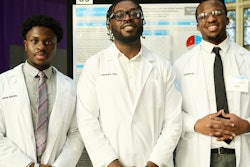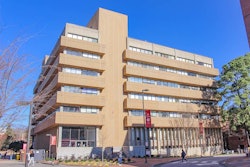University of Maryland Establishes Center To Promote Equal Access to Health Care
BALTIMORE
Heart disease among Blacks, chewing tobacco in Western Maryland, geographic isolation on Maryland’s Eastern Shore and diabetes rates among Hispanics are some of the issues that will be tackled by a new University of Maryland center dedicated to eliminating health care disparities for minority and low-income patients.
Community-based initiatives will target cancer, diabetes, kidney diseases, glaucoma and other diseases that disproportionately affect minorities and the poor, guided in part by a survey of more than 5,000 adults in Baltimore City, Western Maryland and the Eastern Shore.
The director of the center, Dr. Claudia Baquet, said the study will help the medical community “understand what the unique problems are community by community.”
“Now that we know the attitudes and behaviors to target, we can begin to make long-lasting changes,” Baquet said.
Dr. Donald E. Wilson, the dean of the University of Maryland School of Medicine, said part of the problem is educating various groups to seek treatment when they need it, but bias also exists in the health care system.
For example, Wilson, who is Black, said he was taught in medical school that Black patients normally tend to have higher blood pressure, which is no longer believed.
“We have to find out why this is,” Wilson said.
Some high-blood pressure medications also don’t work well for Black patients, an example of why it is important for minorities to be involved in clinical trials of medicines under development, he said.
Delegate Shirley Nathan-Pulliam, D-Baltimore County, a longtime minority health care advocate, said the issue also affects the state’s economy.
Black residents comprise 28 percent of Maryland’s population and account for 66 percent of cardiovascular deaths. Black residents suffering from cardiovascular disease spend 440,000 days in the hospital each year at a cost of $890 million, she said.
“If you’re a business coming into the state, you have to wonder how healthy are these people? We know there’s a direct relation between the state of the economy and your health,” she said.
The survey also found that smokeless tobacco use among adults in Western Maryland is significantly higher than the national average, but only 28 percent of those surveyed had ever been screened for oral cancer, she said.
The center, funded by grants from organizations such as the National Institutes of Health and the Maryland Cigarette Restitution Fund, will also oversee and coordinate the University of Maryland School of Medicine’s statewide and national efforts to reduce health disparities.
— Associated Press
© Copyright 2005 by DiverseEducation.com


















